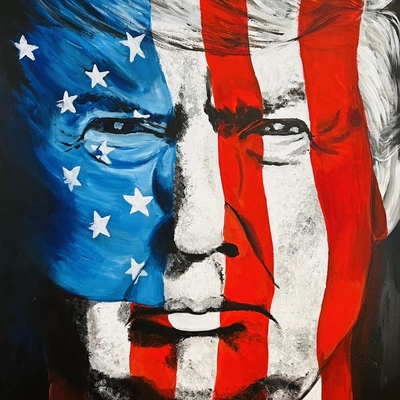Stay informed on the latest Truth Social posts from Donald Trump (@realDonaldTrump) without the doomscrolling. Consider it a public service for your mental health. (Why?)
- Foreign companies making massive investments in the US should bring their expert personnel to train American workers.
- This training will enable the US to learn how to make complex products such as 'Chips, Semiconductors, Computers, Ships, Trains'.
- Without this knowledge transfer, massive foreign investment may not occur in the first place.
- The US previously excelled at making these products but has declined (e.g., shipbuilding capacity has significantly decreased).
- The intention is not to deter or disincentivize foreign investment into America.
- The US welcomes foreign companies and their employees.
- The US intends to learn from foreign experts and eventually surpass their capabilities.
The post discusses a proposed policy that would significantly influence foreign direct investment and technology transfer within key industrial sectors such as semiconductors, computers, and shipbuilding. While not an immediate policy change, the rhetoric signals potential future shifts in industrial policy that could affect S&P 500 constituents involved in these manufacturing and technology areas, particularly those with global supply chains or investment interests in the US.
The post outlines a proposed economic and industrial policy focused on foreign direct investment and technology transfer, without containing any threats, ultimatums, or military references. The stated intent is to welcome foreign investment and collaboration, not to create international conflict.
- Commodities: The emphasis on enhancing domestic production of advanced industrial goods suggests a long-term potential for increased demand for industrial commodities like copper, steel, and rare earth elements within the US. There is no immediate direct impact on gold (XAU) as the post lacks fear or inflation triggers, nor on oil (WTI) as it contains no geopolitical or supply shock references. Short-Term Watchlist: Industrial metals for early signs of sentiment shifts. Medium-Term Focus: Global manufacturing data, infrastructure spending, and long-term commodity demand forecasts.
- Currencies (Forex): A policy that successfully attracts foreign direct investment coupled with domestic industrial growth could be seen as a long-term positive for the US Dollar (DXY) by strengthening the US industrial base and potentially reducing reliance on imports. However, there is no immediate impact on currency markets as this is a policy discussion. Short-Term Watchlist: USD/JPY, EUR/USD for general risk sentiment. Medium-Term Focus: Capital flow data, trade balance figures, and US economic growth differentials.
- Global Equities: The post proposes a policy that, if implemented, could reshape manufacturing and technology sectors. US-based industrial and tech companies might benefit from enhanced domestic capabilities and a skilled workforce, while foreign companies considering US investment would need to evaluate the implications of mandated knowledge transfer. The immediate impact on global equity indices (S&P 500, Nasdaq, STOXX 600, Nikkei 225, Hang Seng) is limited, as this represents a future policy direction rather than an current action. Short-Term Watchlist: Industrial and technology sector performance. Medium-Term Focus: Earnings reports from manufacturing and tech firms, cross-border investment trends.
- Fixed Income (Bonds): The promotion of domestic industrial strength and long-term economic growth through technology transfer could, over time, lead to higher inflation expectations and potentially higher US Treasury yields (10Y, 2Y). However, no immediate market reaction for bond yields is anticipated from this policy proposal alone. Short-Term Watchlist: Treasury yield movements for broader market sentiment. Medium-Term Focus: Inflation data, long-term economic growth forecasts, and central bank policy outlooks.
- Volatility / Derivatives: The post's content, being a discussion of economic policy and industrial strategy, is not expected to trigger immediate market volatility or a significant spike in the VIX. It does not introduce unexpected events or crises. Short-Term Watchlist: VIX levels for overall market sentiment. Medium-Term Focus: Macroeconomic policy uncertainty and its influence on market expectations.
- Crypto / Digital Assets: The post focuses on traditional industrial policy, foreign investment, and manufacturing, and therefore has no direct or indirect relevance or impact on Bitcoin (BTC) or other digital assets. Short-Term Watchlist: BTC/USD price action. Medium-Term Focus: Broader macro liquidity, regulatory developments in the digital asset space.
- Cross-Asset Correlations and Systemic Risk: The content does not indicate any immediate systemic risk or potential for a breakdown in normal cross-asset correlations. It presents a proposed long-term economic strategy rather than a market-disrupting event. Short-Term Watchlist: MOVE index, credit default swap spreads for signs of broad market stress. Medium-Term Focus: Global trade policy evolution, capital flow trends, and geopolitical stability.
- Retail Sentiment / Market Psychology: While the post's themes of industrial resurgence and national capability might resonate with segments of the retail investor base, it is unlikely to directly trigger immediate, focused retail speculation in specific stocks or altcoins. The discussion is high-level industrial policy. Short-Term Watchlist: Social media trends for broader national economic sentiment. Medium-Term Focus: Public perception of industrial policy, potential impact on domestic job markets and related consumer confidence.

